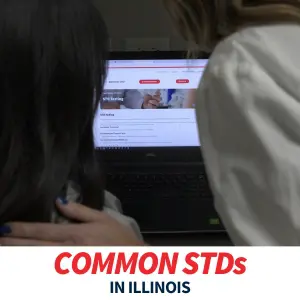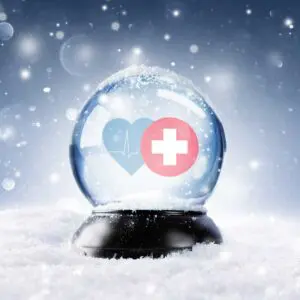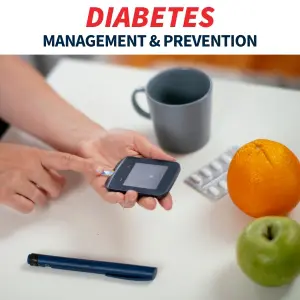What You Need to Know About RSV
As the cold weather season draws closer, cases of respiratory illnesses begin to rise. In addition to the common cold and flu that we’ve all come to know and dread, respiratory syncytial virus, or RSV, is another highly contagious virus to be aware of. RSV primarily affects the lungs and respiratory system, and while it typically results in mild, cold-like symptoms in most patients, it can be more severe for those with weakened immune systems, such as infants, young children and older adults.
Read on to learn about the common symptoms of RSV and find out how to prevent its spread so you can safeguard your health and the health of your family this winter.
Common Symptoms Of RSV
RSV can cause symptoms similar to those of the common cold, making it hard to distinguish between the two conditions early on. Common symptoms of RSV can include:
- Runny nose
- Coughing
- Sneezing
- Decreased appetite
- Mild fever
These symptoms may develop slowly and can last up to two weeks. In many healthy adults and older children, RSV typically presents as nothing more than a mild respiratory infection. However, for certain groups, RSV can lead to more serious conditions, including bronchiolitis (inflammation of the small airways in the lungs) or pneumonia (a severe lung infection). Those most at risk of developing a severe condition because of an RSV infection include:
- Premature infants
- Children under 2 years old with chronic lung or heart conditions
- Older adults, especially those over 65
- Children and adults with weakened immune systems
In these cases, RSV may require hospitalization for IV fluids, oxygen therapy or, in some cases, mechanical ventilation.
RSV Risks for Young Children and Older Adults
As the infection progresses in younger children and older adults, respiratory symptoms may become more severe due to the virus causing inflammation of the airways. This can lead to symptoms such as:
- Wheezing: A whistling sound when breathing, particularly on exhaling.
- Rapid or troubled breathing: RSV can make it harder to breathe, especially for infants.
- Cyanosis: A bluish tint to the skin, lips or fingernails due to a lack of oxygen. This is a symptom of severe respiratory distress and requires immediate medical attention.
RSV Risks in Infants
RSV is particularly dangerous for infants under 6 months old. In babies, the symptoms may not always follow the typical cold-like pattern and can include:
- Poor feeding: Infants with RSV may refuse to drink or eat due to difficulty breathing.
- Irritability: Babies may become unusually irritable or fussy.
- Decreased activity: Fatigue or reduced energy levels can be a warning sign that RSV is affecting the infant’s ability to breathe or get enough oxygen.
- Apnea: In some cases, particularly in premature infants, RSV can cause brief periods where breathing temporarily stops.
When To Seek Immediate Medical Attention
While most RSV infections resolve on their own with rest and fluids, you should seek medical attention if you or your child experience any of the following:
- Difficulty breathing or rapid breathing
- Persistent fever (above 100.4°F for more than three days)
- Signs of dehydration, such as dry mouth, lack of tears or little to no urination
- Extreme fatigue
- Bluish skin, lips or fingernails
RSV Prevention Tips
Since RSV spreads through droplets in the air, it’s important to practice good hygiene, especially during cold, flu and RSV season (October through March). Ways to prevent the spread of RSV include:
- Wash your hands frequently with soap and water for at least 20 seconds. If you don’t have access to a handwashing station while you’re out and about, consider bringing hand sanitizer with you when you are in public spaces.
- Avoid close contact with sick individuals, especially infants, young children and older adults.
- Disinfect surfaces that are frequently touched, like doorknobs, bathroom sinks and countertops.
- Cover coughs and sneezes with a tissue or elbow, especially when you are in a public space.
Get Comprehensive RSV Care at Midwest Express Clinic
When it comes to managing RSV, recognizing the early signs, staying vigilant for worsening symptoms, and knowing when to seek medical attention are essential to safeguarding your health and the health of your loved ones. If you suspect that you or your child is experiencing RSV symptoms, visit your nearest Midwest Express Clinic. With over 50 locations open daily across Northwest Indiana and Chicagoland, we welcome walk-ins and provide prompt, thorough care. Our experienced healthcare providers will ensure you receive an accurate diagnosis and a personalized treatment plan. For pediatric urgent care near you, visit midwestexpressclinic.com/locations.




